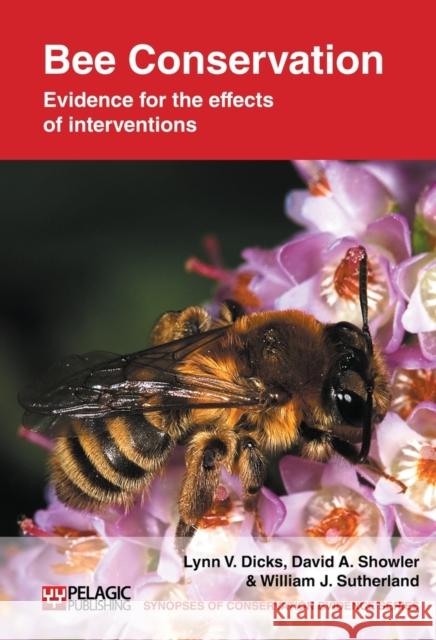Bee Conservation: Evidence for the Effects of Interventions » książka
Bee Conservation: Evidence for the Effects of Interventions
ISBN-13: 9781907807008 / Angielski / Miękka / 2010 / 139 str.
Bee Conservation: Evidence for the Effects of Interventions
ISBN-13: 9781907807008 / Angielski / Miękka / 2010 / 139 str.
(netto: 116,57 VAT: 5%)
Najniższa cena z 30 dni: 104,32
ok. 22 dni roboczych.
Darmowa dostawa!
This book brings together scientific evidence and experience relevant to the practical conservation of wild bees. The authors worked with an international group of bee experts and conservationists to develop a global list of interventions that could benefit wild bees. They range from protecting natural habitat to controlling disease in commercial bumblebee colonies. For each intervention, the book summarises studies captured by the Conservation Evidence project, where that intervention has been tested and its effects on bees quantified. The result is a thorough guide to what is known, or not known, about the effectiveness of bee conservation actions throughout the world. Bee Conservation is the first in a series of Synopses of Conservation Evidence, linked to the online resource www.ConservationEvidence.com. Forthcoming editions will cover birds, grassland and farmland conservation. The series is part of an on-going effort to make biodiversity conservation more evidence-based.
This book brings together scientific evidence and experience relevant to the practical conservation of wild bees.The authors worked with an international group of bee experts and conservationists to develop a global list of interventions that could benefit wild bees. They range from protecting natural habitat to controlling disease in commercial bumblebee colonies.For each intervention, the book summarises studies captured by the Conservation Evidence project, where that intervention has been tested and its effects on bees quantified. The result is a thorough guide to what is known, or not known, about the effectiveness of bee conservation actions throughout the world.Bee Conservation is the first in a series of Synopses of Conservation Evidence, linked to the online resource www.ConservationEvidence.com. Forthcoming editions will cover birds, grassland and farmland conservation. The series is part of an on-going effort to make biodiversity conservation more evidence-based.











